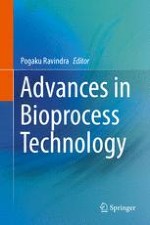2015 | OriginalPaper | Buchkapitel
4. Waste Management Methods and Sustainablity
verfasst von : S. M. Faheem, M. A. Khan
Erschienen in: Advances in Bioprocess Technology
Aktivieren Sie unsere intelligente Suche, um passende Fachinhalte oder Patente zu finden.
Wählen Sie Textabschnitte aus um mit Künstlicher Intelligenz passenden Patente zu finden. powered by
Markieren Sie Textabschnitte, um KI-gestützt weitere passende Inhalte zu finden. powered by
